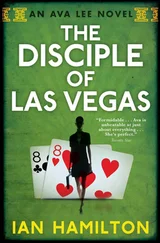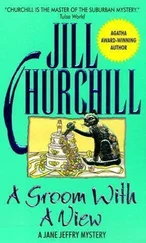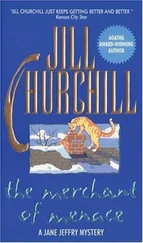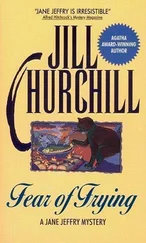Winston Churchill - Ian Hamilton's March
Здесь есть возможность читать онлайн «Winston Churchill - Ian Hamilton's March» весь текст электронной книги совершенно бесплатно (целиком полную версию без сокращений). В некоторых случаях можно слушать аудио, скачать через торрент в формате fb2 и присутствует краткое содержание. Год выпуска: 2018, Издательство: epubBooks Classics, Жанр: История, Прочая документальная литература, на английском языке. Описание произведения, (предисловие) а так же отзывы посетителей доступны на портале библиотеки ЛибКат.
- Название:Ian Hamilton's March
- Автор:
- Издательство:epubBooks Classics
- Жанр:
- Год:2018
- ISBN:нет данных
- Рейтинг книги:4 / 5. Голосов: 1
-
Избранное:Добавить в избранное
- Отзывы:
-
Ваша оценка:
- 80
- 1
- 2
- 3
- 4
- 5
Ian Hamilton's March: краткое содержание, описание и аннотация
Предлагаем к чтению аннотацию, описание, краткое содержание или предисловие (зависит от того, что написал сам автор книги «Ian Hamilton's March»). Если вы не нашли необходимую информацию о книге — напишите в комментариях, мы постараемся отыскать её.
London to Ladysmith
Ian Hamilton's March — читать онлайн бесплатно полную книгу (весь текст) целиком
Ниже представлен текст книги, разбитый по страницам. Система сохранения места последней прочитанной страницы, позволяет с удобством читать онлайн бесплатно книгу «Ian Hamilton's March», без необходимости каждый раз заново искать на чём Вы остановились. Поставьте закладку, и сможете в любой момент перейти на страницу, на которой закончили чтение.
Интервал:
Закладка:
Camp before Dewetsdorp: April 22.
Whether I am to see the white cliffs of Dover again I know not, nor will I attempt to predict. But it seems that my fortunes in this land are to be a succession of adventures and escapes, any one of which would suffice for a personal experience of the campaign. I acquit myself of all desire to seek for these. Indeed, I have zealously tried to avoid all danger except what must attend a War Correspondent's precarious existence. This I recognise as a necessary evil, for the lot of the writer in the field is a hard and heavy one. 'All the danger of war and one–half per cent. the glory': such is our motto, and that is the reason why we expect large salaries. But these hazards swoop on me out of a cloudless sky, and that I have hitherto come unscathed through them, while it fills my heart with thankfulness to God for His mercies, makes me wonder why I must be so often thrust to the brink and then withdrawn.
However, I will tell the tale of the doings of the Army, and what happened to me shall fill its proper place, so that the reader may himself be the judge of the matter.
The night of the 20th passed quietly, but the Boers were awake with the sunrise and saluted us with discharges of the 'pom–pom,' which, as far as I could see, did no harm to anyone. We could not press the attack on the previous day because the Infantry were tired out and the enemy's position of sufficient natural strength to make an assault a serious business. In the night the Dutchmen had been busy, and the black lines of entrenchments marked the hill–sides. When I inquired whether there would be a battle or not that day, staff officers pointed over the veldt to a column of dust which was coming slowly nearer.
General Campbell, with three battalions (including two of her Majesty's Guards) and a battery, was marching to join the main column. It was necessary, in view of the entrenchments and the approaching reinforcements, to wait until the force was complete. The event would be decided on the morrow, and meanwhile Brabazon and the mounted troops—Cavalry, I shall call them—were to make a reconnaissance of the Boer left.
The brigade, which included the Mounted Infantry, and was about a thousand strong, moved southward behind the outpost line and, making a rapid and wide circuit, soon came on the enemy's left flank. Here we waited while patrols were pushed out and while Brabazon was clearing his own right by a still wider turning movement. The patrols soon drew the fire of the Boer pickets, and the rifle shots began to ring out in the clear cool air of the morning. Presently a party of a dozen Boers appeared in the distance, galloping down towards a farm whence they might fire on the gradually advancing Cavalry. The General asked the subaltern in charge of our two guns whether they were within range. The young officer was anxious to try. We watched the experiment with attention.
The practice was extremely good. The first shell burst in the middle of the Boer horsemen, who at once spread into a looser formation. The next exploded in front of them, and all the seven shells that were fired fell within measurable distance of someone.
For the first time in this war I saw the Boers show what I consider cowardice; for without anyone being killed or wounded the whole party turned back and, abandoning their intention or duty, scurried away to cover behind the long swell of ground over which they had come. The Boer Army in Natal was not thus easily dissuaded from its objects.
Meanwhile the flanking movement was in progress, and as the ground to our right was gradually made good and secured by Colonel Sitwell, Brabazon pushed his centre forward until McNeill's scouts were cantering all over the slopes where the Boers had just been shelled, and hunting such of the enemy as tarried to safer and more remote positions. At last we arrived at the edge of the swell of ground. It fell steeply towards a flat basin, from the middle of which rose a most prominent and peculiar kopje. Invisible behind this was Dewetsdorp. Round it stood Boers, some mounted, some on foot, to the number of about two hundred.
Our rapid advance, almost into the heart of their position, had disturbed and alarmed them. They were doubtful whether this was reconnaissance or actual attack. They determined to make certain by making an attempt to outflank the outflanking cavalry; and no sooner had our long–range rifle fire compelled them to take cover behind the hill than a new force, as it seemed, of two hundred rode into the open and passing across our front at a distance of, perhaps, 2,000 yards, made for a white stone kopje on our right.
Angus McNeill ran up to the General. 'Sir, may we cut them off? I think we can just do it.' The scouts pricked up their ears. The General reflected. 'All right,' he said, 'you may try.'
'Mount, mount, mount, the scouts!' cried their impetuous officer, scrambling into his saddle. Then, to me, 'Come with us, we'll give you a show now—first–class.'
A few days before, in an unguarded moment, I had promised to follow the fortunes of the scouts for a day. I looked at the Boers, they were nearer to the white stone kopje than we, but, on the other hand, they had the hill to climb, and were probably worse mounted. It might be done, and if it were done—I thought of the affair of Acton Homes—how dearly they would have to pay in that open plain. So, in the interests of the 'Morning Post,' I got on my horse and we all started—forty or fifty scouts, McNeill and I, as fast as we could, by hard spurring, make the horses go.
It was from the very beginning a race, and recognised as such by both sides. As we converged I saw the five leading Boers, better mounted than their comrades, outpacing the others in a desperate resolve to secure the coign of vantage. I said, 'We cannot do it'; but no one would admit defeat or leave the matter undecided. The rest is exceedingly simple.
We arrived at a wire fence 100 yards—to be accurate 120 yards—from the crest of the kopje, dismounted, and, cutting the wire, were about to seize the precious rocks when—as I had seen them in the railway cutting at Frere, grim, hairy and terrible—the heads and shoulders of a dozen Boers appeared; and how many more must be close behind them?
There was a queer, almost inexplicable, pause, or perhaps there was no pause at all; but I seem to remember much happening. First the Boers—one fellow with a long, drooping, black beard, and a chocolate–coloured coat, another with a red scarf round his neck. Two scouts cutting the wire fence stupidly. One man taking aim across his horse, and McNeill's voice, quite steady: 'Too late; back to the other kopje. Gallop!'
Then the musketry crashed out, and the 'swish' and 'whirr' of the bullets filled the air. I put my foot in the stirrup. The horse, terrified at the firing, plunged wildly. I tried to spring into the saddle; it turned under the animal's belly. He broke away, and galloped madly off. Most of the scouts were already 200 yards off. I was alone, dismounted, within the closest range, and a mile at least from cover of any kind.
One consolation I had—my pistol. I could not be hunted down unarmed in the open as I had been before. But a disabling wound was the brightest prospect. I turned, and, for the second time in this war, ran for my life on foot from the Boer marksmen, and I thought to myself, 'Here at last I take it.' Suddenly, as I ran, I saw a scout. He came from the left, across my front; a tall man, with skull and crossbones badge, and on a pale horse. Death in Revelation, but life to me.
I shouted to him as he passed: 'Give me a stirrup.' To my surprise he stopped at once. 'Yes,' he said, shortly. I ran up to him, did not bungle in the business of mounting, and in a moment found myself behind him on the saddle.
Then we rode. I put my arms around him to catch a grip of the mane. My hand became soaked with blood. The horse was hard hit; but, gallant beast, he extended himself nobly. The pursuing bullets piped and whistled—for the range was growing longer—overhead.
Читать дальшеИнтервал:
Закладка:
Похожие книги на «Ian Hamilton's March»
Представляем Вашему вниманию похожие книги на «Ian Hamilton's March» списком для выбора. Мы отобрали схожую по названию и смыслу литературу в надежде предоставить читателям больше вариантов отыскать новые, интересные, ещё непрочитанные произведения.
Обсуждение, отзывы о книге «Ian Hamilton's March» и просто собственные мнения читателей. Оставьте ваши комментарии, напишите, что Вы думаете о произведении, его смысле или главных героях. Укажите что конкретно понравилось, а что нет, и почему Вы так считаете.











